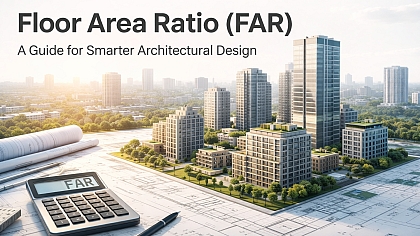
Why Flexible Workspaces Are the Key to Business Growth
Traditional office leases don't make sense for most growing businesses today. Companies need space that adapts to their changing needs without locking them into expensive, long-term commitments. The numbers tell a compelling story - 59% of companies plan to expand office space through coworking in the next 2 years.
This shift isn't just about saving money; it's about creating environments where businesses can truly thrive and grow. Flexible workspaces also offer access to premium amenities and vibrant professional communities. As teams become more distributed, having scalable office options helps maintain productivity and culture without unnecessary overhead.
The Growing Appeal of Flexible Work Environments
Flexible workspace solutions are reshaping how companies think about their office needs. Instead of traditional leases that tie businesses down for years, these spaces offer month-to-month arrangements that can adapt as companies grow or pivot.
Sholinganallur has emerged as one of Chennai's most dynamic business districts, particularly popular among IT companies and startups. This tech corridor offers excellent connectivity and a vibrant professional ecosystem that attracts entrepreneurs and established businesses alike.
For businesses exploring options in this area, finding the right coworking space can provide the perfect blend of professional infrastructure and networking opportunities. These spaces offer modern amenities, flexible terms, and access to a community of like-minded professionals.
Cost-Effectiveness That Makes Sense
Let's be honest - traditional office setups are expensive. When you factor in rent, utilities, furniture, internet, and maintenance, the costs add up quickly. Flexible office spaces eliminate most of these upfront expenses by providing everything businesses need in one package.
You're not just paying for square footage; you're getting access to meeting rooms, high-speed internet, reception services, and often perks like coffee and printing facilities. This bundled approach typically costs less than setting up a comparable traditional office.
Scalability Without the Headaches
Growing businesses face a common dilemma: they need more space but don't want to commit to something too large or expensive. Coworking space arrangements solve this problem by allowing companies to expand or contract their footprint based on actual needs rather than projections.
If you hire five new employees, you can easily add more desks. If a project winds down and you need less space, you can scale back without breaking lease agreements or losing deposits.
The flexibility extends beyond just physical space. These environments allow businesses to test new markets, establish satellite offices, or provide temporary workspace for traveling employees.
How Flexible Spaces Drive Innovation and Collaboration
Innovation doesn't happen in isolation. It emerges from diverse perspectives, unexpected conversations, and collaborative environments that traditional offices often can't provide.
Networking Opportunities That Matter
Shared coworking space environments naturally create opportunities for meaningful professional connections. You might find yourself chatting with a marketing expert during lunch or collaborating with a developer on a side project.
These interactions often lead to partnerships, referrals, or simply fresh perspectives on business challenges. The diversity of industries and expertise levels in most coworking spaces creates a rich ecosystem for knowledge sharing.
Unlike forced networking events, these connections develop organically through daily interactions. Many successful business partnerships have started with casual conversations in shared kitchen areas or collaborative workspaces.
Creative Environments That Spark Ideas
The design of most flexible workspaces intentionally promotes creativity and collaboration. Open layouts, comfortable seating areas, and vibrant décor create an atmosphere that's more conducive to innovative thinking than sterile traditional offices.
Many spaces also offer different zones for different types of work - quiet areas for focused tasks, collaborative spaces for team meetings, and casual areas for brainstorming sessions. This variety helps people work in environments that match their current needs and energy levels.
The constant flow of new faces and projects keeps the environment dynamic and inspiring, preventing the stagnation that can occur in isolated office settings.
Financial Benefits That Impact Your Bottom Line
Beyond the obvious cost savings, flexible workspaces offer several financial advantages that can significantly impact business growth and sustainability.
Reduced Overhead Expenses
Traditional office leases often require significant upfront investments - security deposits, furniture purchases, utility setup fees, and renovation costs. These expenses can drain cash flow that growing businesses need for operations and expansion.
Shared office space for startups eliminates most of these barriers. The space comes fully furnished and equipped, allowing businesses to redirect capital toward revenue-generating activities rather than office setup.
Utility costs, maintenance, cleaning, and security are all handled by the workspace provider, making monthly expenses predictable and manageable. This predictability helps with budgeting and cash flow planning.
Better Cash Flow Management
Monthly membership fees are typically much lower than traditional lease payments plus utilities and other office-related expenses. This improved cash flow gives businesses more flexibility to invest in growth opportunities as they arise.
The shorter commitment periods also mean businesses aren't locked into fixed costs during uncertain times. If revenue dips temporarily, companies can adjust their workspace arrangements rather than being stuck with expensive lease obligations.
This financial flexibility becomes particularly valuable during economic uncertainty or when businesses are experiencing rapid changes in their market conditions.
Technology and Infrastructure Advantages
Modern businesses require sophisticated technology infrastructure that can be expensive and time-consuming to set up independently.
Most flexible office spaces come equipped with enterprise-grade internet, modern phone systems, printing facilities, and conference room technology. These amenities would cost thousands of dollars for individual businesses to install and maintain.
The technology infrastructure is professionally managed and regularly updated, ensuring reliability and security standards that many small businesses couldn't afford to maintain independently.
Video conferencing capabilities, presentation equipment, and high-speed internet allow businesses to operate professionally from day one without significant technology investments.
Modern Amenities Without the Investment
Beyond basic technology, many flexible workspaces offer amenities that enhance productivity and employee satisfaction - ergonomic furniture, wellness rooms, fitness facilities, and professional reception services.
These perks help businesses attract and retain talent without the expense of providing them independently. Employees appreciate working in modern, well-designed environments that support their productivity and well-being.
The professional appearance and amenities also create positive impressions when meeting with clients or partners, helping businesses project a more established image than they might achieve with a basic office setup.
Here's a comparison of traditional offices versus flexible workspaces:
|
Aspect |
Traditional Office |
Flexible Workspace |
|
Setup Time |
3-6 months |
Immediate |
|
Initial Investment |
$20,000-50,000+ |
$500-2,000/month |
|
Lease Terms |
3-10 years |
Month-to-month |
|
Networking |
Limited |
Built-in community |
|
Amenities |
Self-provided |
Included |
|
Scalability |
Difficult |
Easy |
Your Questions About Flexible Workspaces Answered
How does being flexible help a business?
Flexible working allows companies to adapt to fluctuating market demand to boost responsiveness and competitiveness while reducing fixed costs and operational overhead.
What is the advantage of a flexible space?
Flexible spaces stimulate innovation by sharing space with startups, freelancers, and other companies, enabling organizations to increase exposure to different ideas and thinking.
What are the benefits of setting up workspaces?
Good workspaces provide plenty of space for equipment and tasks, while cleaning up clutter makes work more productive, and open spaces allow freer movement.
Why Flexible Workspaces Are Your Growth Strategy
The evidence is clear - flexible workspaces aren't just a trend, they're a fundamental shift in how successful businesses operate. They offer the cost-effectiveness, scalability, and collaborative environments that growing companies need to thrive in today's competitive markets.
Whether you're a startup looking to establish credibility, an established company exploring new markets, or somewhere in between, flexible workspace solutions can provide the foundation for sustainable growth. The question isn't whether flexible workspaces will continue growing - it's whether your business will take advantage of this opportunity to grow alongside them.










